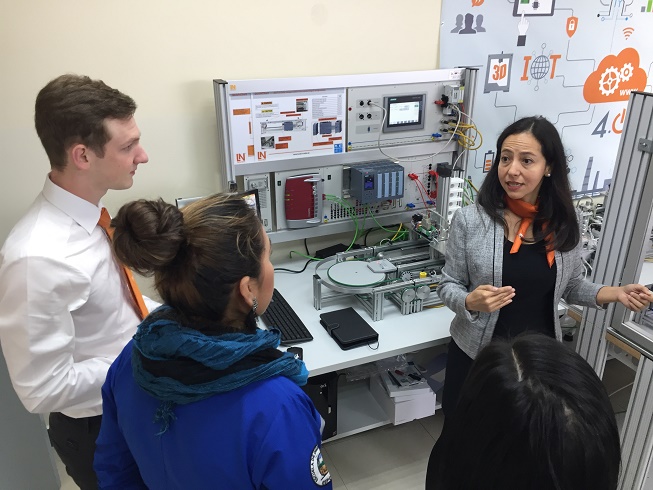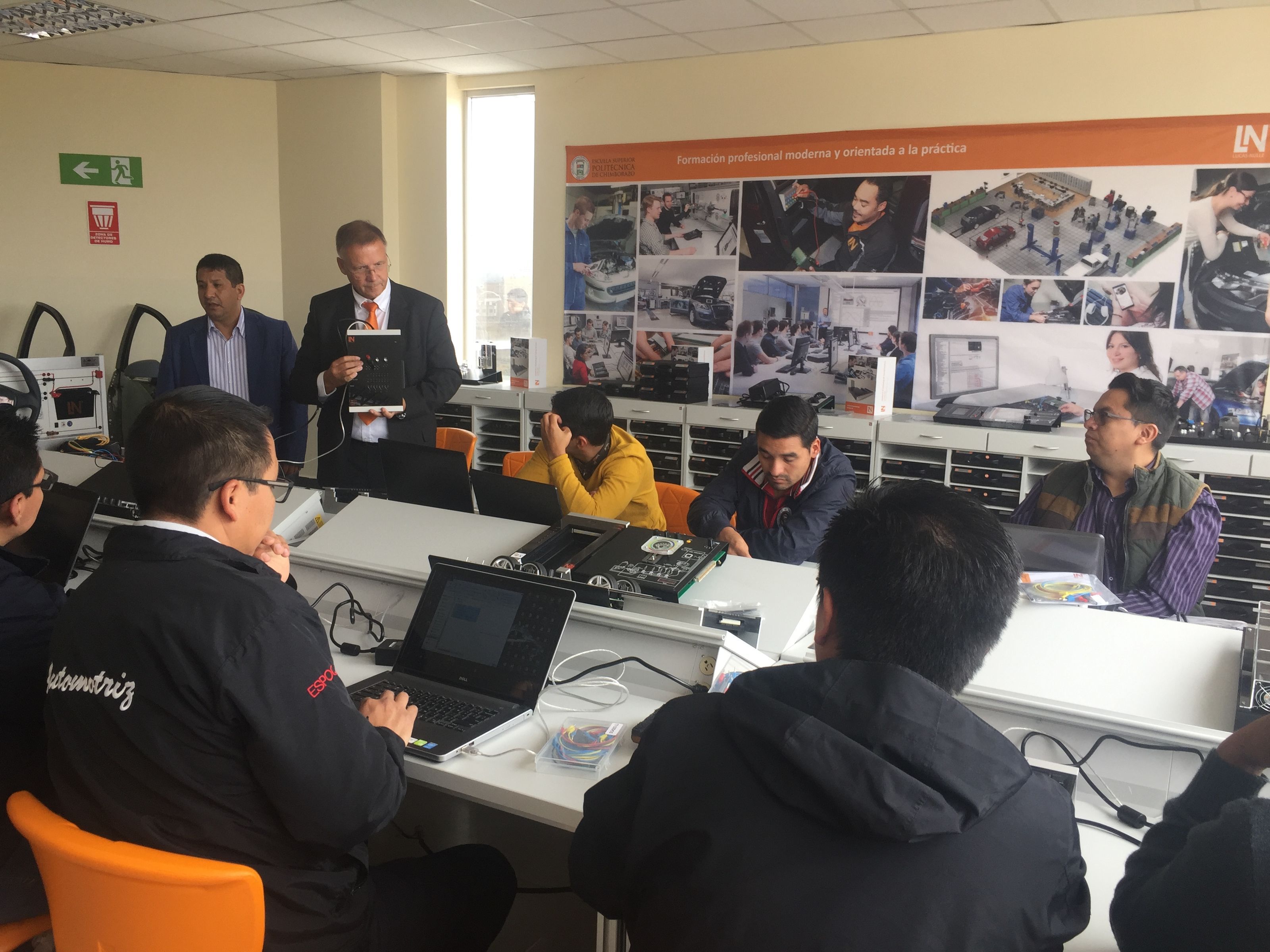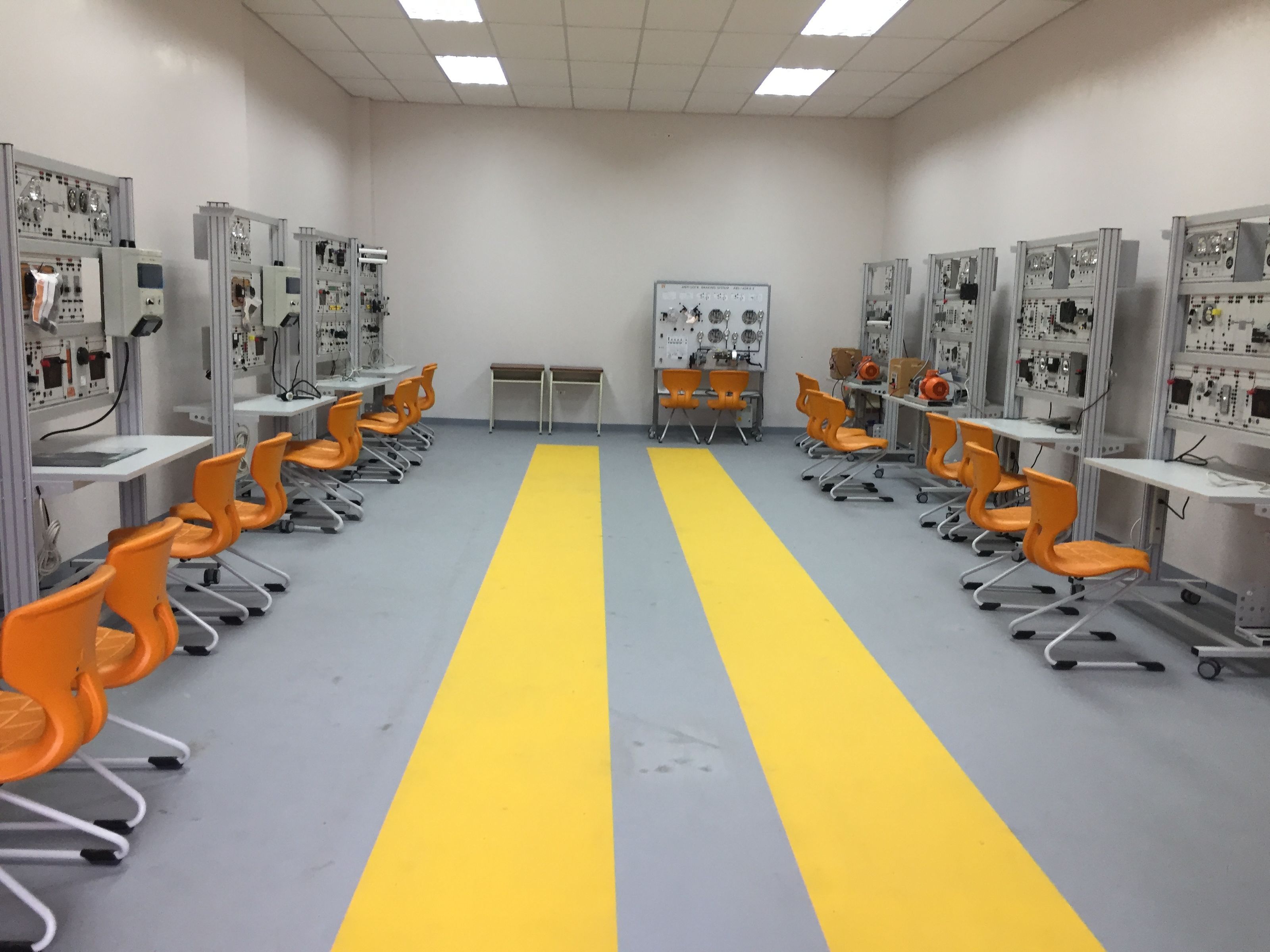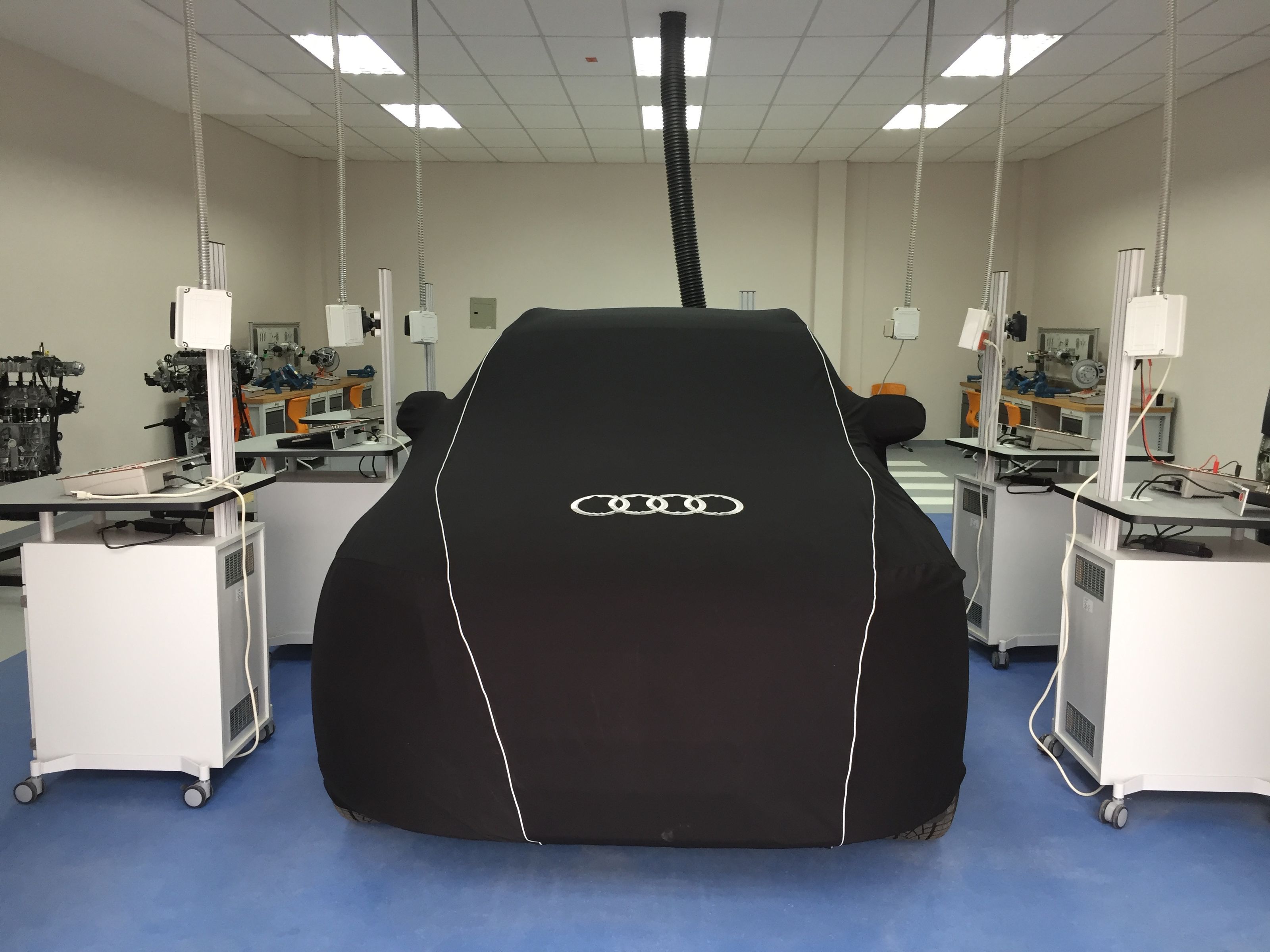An interdisciplinary approach that serves as a good example
In Riobamba, in the geographical heart of Ecuador, “ESPOCH” Polytechnic University is investing in the future of interconnected technology.The university is pursuing a pioneering educational programme with a new didactic concept. The path embarked upon with the new laboratories will serve as a good example for the whole of Latin America.
Advanced technology training
Riobamba is situated in a basin in the Andes at an altitude of almost 2800 metres. The views are certainly impressive, with no fewer than six volcanoes – some of them active – surrounding the city. Agriculture in the surrounding regions continues to be an important economic factor as half of Ecuador is supplied with food via the Riobamba transport hub. The Andean city also boasts good infrastructure as well as a level of safety and security that is among the best in the country.
Then there is also Riobamba’s technologically advanced side, as evidenced for a number of years by the technical university that is based here. The Escuela Superior Politécnica de Chimborazo (ESPOCH) is investing in state-of-the-art Lucas-Nülle equipment. At the same time, the university is currently carrying out a revision of basic didactic principles – and is demonstrating far-sightedness in the process.
Structural change for an interconnected future
 Under the direction of Byron Ernesto Vaca Barahona (PhD Eng), ESPOCH is placing greater emphasis on
Under the direction of Byron Ernesto Vaca Barahona (PhD Eng), ESPOCH is placing greater emphasis on
practical-orientated and interdisciplinary training. To this end, the university has set up several state-of-the-art laboratories covering the Smart Factory, Automotive Technology and Renewable Energies. The new, didactically tried and tested equipment allows the students to be given ideal preparation for the structural changes taking place in an increasingly interconnected world. To facilitate all this, Principal (rectorado) Vaca Barahona and the Deans (decano) of the individual institutes have initiated a visionary process of transformation. Just like with the technology, the students in Riobamba are also set to become increasingly interconnected in future. To this end, the new ESPOCH laboratories also transcend the boundaries of the individual institutes. Students from several disciplines learn together here. Also, the new equipment increases the practical focus of teaching. Hands-on training lets students look at theoretical aspects in the context of realistic scenarios.
The Smart Factory – an example of the interdisciplinary approach
 How this multidisciplinary approach across institutes works in practice can be seen in the Smart Factory laboratory equipped by Lucas-Nülle. The Smart Factory that has been put together here for didactic purposes includes equipment covering the topics of automation, robotics and interconnection via a CPS. Thanks to the integrated ERP system, the laboratory is also of interest to students without a technical background. This ERP software interconnects the entire product life cycle in industry, from ordering to production and delivery through to complaints. It means that every area of a company comes into contact with this system.
How this multidisciplinary approach across institutes works in practice can be seen in the Smart Factory laboratory equipped by Lucas-Nülle. The Smart Factory that has been put together here for didactic purposes includes equipment covering the topics of automation, robotics and interconnection via a CPS. Thanks to the integrated ERP system, the laboratory is also of interest to students without a technical background. This ERP software interconnects the entire product life cycle in industry, from ordering to production and delivery through to complaints. It means that every area of a company comes into contact with this system.
That is precisely why ESPOCH has also made the Smart Factory laboratory accessible to students who are not part of the Institute of Information Technology and Electrical Engineering to which the laboratory is actually linked. Students from different spheres ranging from business management to electrical engineering and process control can work together on projects here. The laboratory transforms the Smart Factory from a theoretical idea into an object that can actually be operated by all the users.
Strong focus on the fusion of mechanical and electrical engineering
 ESPOCH has implemented virtually the same concept in the new Automotive Technology laboratory of the Institute of Mechanical Engineering and Automotive Technology (Faculdad de Mecánica) and in the Renewable Energy laboratory of the Institute of Natural Sciences. The example of Automotive Technology clearly demonstrates another advantage of the new training concept. Just like in the Smart Factory, the areas of mechanical and electrical engineering are increasingly merging in the motor vehicle.
ESPOCH has implemented virtually the same concept in the new Automotive Technology laboratory of the Institute of Mechanical Engineering and Automotive Technology (Faculdad de Mecánica) and in the Renewable Energy laboratory of the Institute of Natural Sciences. The example of Automotive Technology clearly demonstrates another advantage of the new training concept. Just like in the Smart Factory, the areas of mechanical and electrical engineering are increasingly merging in the motor vehicle.
The electronic handbrake is just one example of the many areas in which electronics has now replaced direct mechanical action. Electrotechnical topics especially can be better illustrated and taught in laboratories. With ESPOCH clearly looking to the future, the laboratory has a special focus on Hybrid and All Electric Vehicles. Here, too, the university has its finger on the pulse of the times and has recognized that safe training in the use of highvoltage technology is only possible in a laboratory setting.
International qualifications the next step
Another element in the university’s progressive trajectory is the establishment of ESPOCH as the first IMI-certified educational institution in Latin America. To this end, the university is currently undergoing a special process stipulated by Britain’s Institute of the Motor Industry (IMI). The aim of this process is to give the students qualifications that will particularly distinguish them in the international education market. The list of measures does not stop there though. For example, the ESPOCH trainers also receive comprehensive training to enable them to provide the best possible teaching in the new laboratories. In addition, the didactic concept includes a multilingual aspect. The Blended Learning courses allow students to view the content in Spanish and, simultaneously, in English, German or Portuguese if they so wish. It is the broad focus of the new, progressive approach that makes ESPOCH stand out. Few institutions in Latin America can compare themselves to this initiative.
